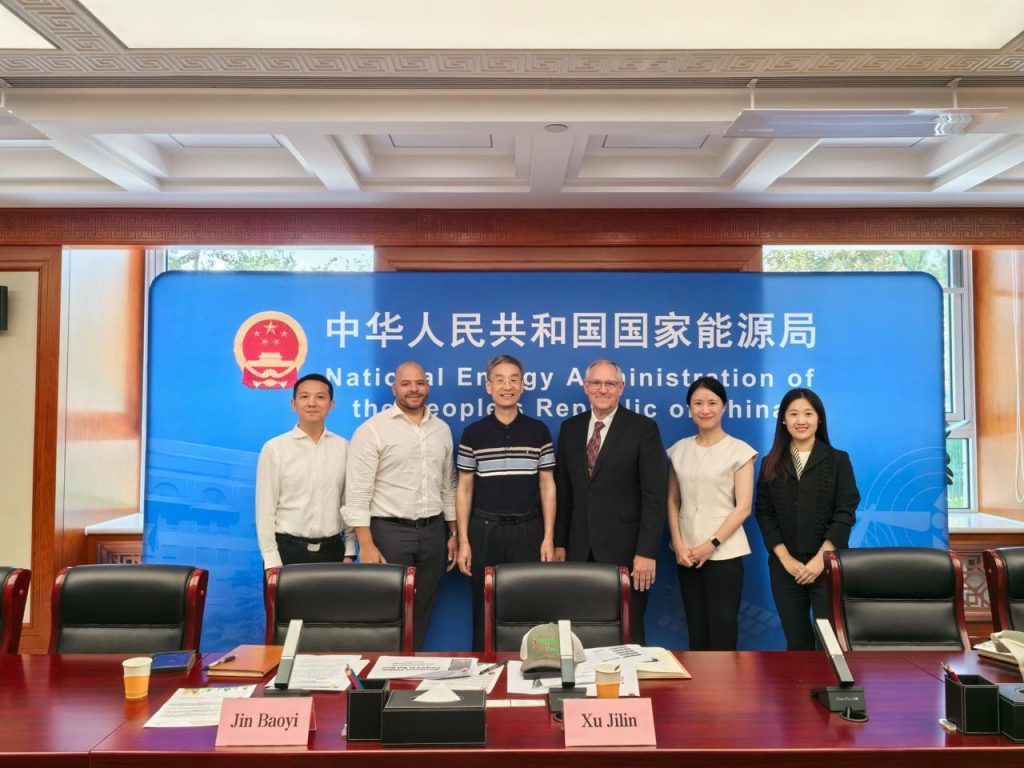In late August, representatives from the U.S. Grains Council (USGC) and the U.S. ethanol industry embarked on an exploratory mission to China, aimed at gaining critical insights into the country’s ethanol market and policy landscape. The mission sought to foster collaboration between U.S. and Chinese stakeholders while assessing the Council’s future ethanol strategy in the region.
In 2017, China announced its plan for a nationwide 10 percent blending (E10) mandate by 2020, but this was unofficially suspended in late 2020, leading to decreased blending rates in pilot regions. The domestic ethanol industry has faced challenges such as fluctuating corn prices, weak enforcement of mandates and shifting priorities towards renewable electricity and electric vehicles. If China were to fully implement a national E10 program, it would require approximately five billion gallons of fuel ethanol, indicating significant market potential.
“China’s domestic ethanol industry coupled with supportive policies can play a key role in global biofuel expansion. By fostering stronger ties and cooperation, both countries can benefit from enhanced energy security and sustainability,” said Walter Wendland, Ringneck Energy CEO and USGC Ethanol Advisory Team (A-Team) member. “As the U.S. ethanol industry continues to grow, a well-developed ethanol market in China will help pave the way for future win-win opportunities.”
Wendland and USGC Director of Global Programs Stella Qian joined Council staff based in its Beijing, China office to engage with various industry, academic and governmental stakeholders to deepen the understanding of China’s ethanol market, technology advancements and ongoing bilateral collaboration in renewable energy and biofuels. The discussions also addressed challenges in the local ethanol industry and explored future opportunities for partnership.
A highlight of the mission was a meeting with the National Energy Administration (NEA), China’s primary policymaker for renewable energy and biofuels sectors. During the meeting, the Council’s team shared updates on recent advancements in the U.S. ethanol industry, including supportive policies under the Inflation Reduction Act, and the growing global focus on biofuels and sustainable aviation fuel (SAF).
“One of our main goals on this program was emphasizing the benefits of ethanol in rural development and its potential to play a critical role in decarbonizing both the transportation and aviation sectors,” Qian said. “The NEA acknowledged these benefits during our meeting and expressed its interest in revitalizing the Sino-U.S. Biofuels Forum, a positive step that could further bilateral engagement on biofuels and contribute to shared climate goals. ”
Learn more about the Council’s work in China here.
About The U.S. Grains Council
The U.S. Grains Council develops export markets for U.S. barley, corn, sorghum and related products including distiller’s dried grains with solubles (DDGS) and ethanol. With full-time presence in 28 locations, the Council operates programs in more than 50 countries and the European Union. The Council believes exports are vital to global economic development and to U.S. agriculture’s profitability. Detailed information about the Council and its programs is online at www.grains.org.

